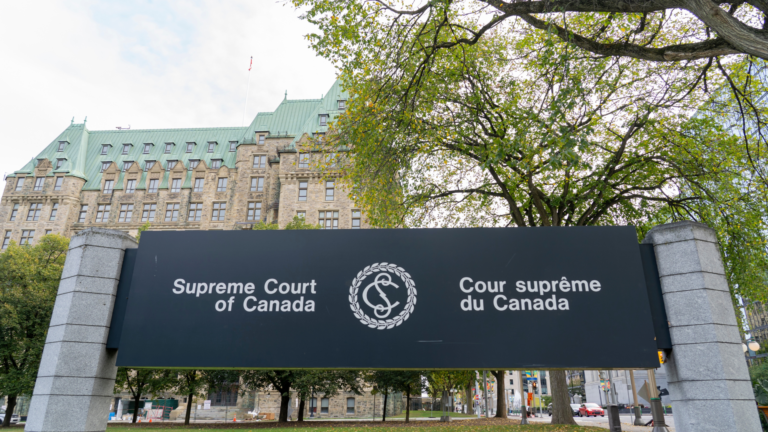Empowering Neurodiverse Individuals with Legal Support in Ontario’s Criminal Justice System
It’s not always simple to navigate the criminal justice system. But for people with Autism Spectrum Disorder (ASD), that journey can be much harder and more emotionally draining. More and more families and advocates in Ontario are worried that the justice system, even though it has made progress, is still not fully able to meet the needs of autistic people. When neurodivergent behaviours are misunderstood or unfairly judged, the system can feel like it’s against you from the first time you talk to the police.
In this blog, we’ll talk about how autism and criminal law in Ontario are connected, the problems that autistic people face in the legal system, possible defences, and how a top criminal law firm, can help with these difficult cases.
Understanding Autism and Criminal Behaviour
Before diving into legal issues, it’s essential to understand what autism is—and what it is not.
Autism Spectrum Disorder (ASD) is a lifelong neurodevelopmental disorder that alters an individual’s communication, sensory processing, and interactions with their environment. Autism is a spectrum disorder, which means that people with it can have a wide range of strengths and weaknesses. Some people may need a lot of help and not be able to talk much, while others may be able to talk a lot but still have trouble with social cues, anxiety, or too much sensory input.
It’s important to remember that autism doesn’t make people do undesirable things. However, some autistic traits can cause difficulties in public settings or when interacting with authority figures. For instance:
- If a person with autism doesn’t make eye contact, officers might think they’re hiding something.
- When police ask questions, literal language can lead to confusion.
- People might think that someone is guilty or lying if they have a strange tone of voice, repeatedly do the same thing (stimming), or struggle to answer open-ended questions.
Unfortunately, these are common misunderstandings that occur when an assigned officer lacks a background in ASD.
How the Ontario Criminal Justice System Handles Autism
Ontario’s court system attempts to address mental health and disability concerns, but there are still problems, especially when it comes to addressing persons with ASD.
People with autism have the same legal rights and protections as everyone else when dealing with police or courts. The Canadian Charter of Rights and Freedoms and the Ontario Human Rights Code should, in theory, make it possible for people to obtain accommodations. These accommodations can include access to communication aids, support personnel, or even modifications to the courtroom. In reality, however, these accommodations do not always function as intended.
Why does this happen?
- Many officers, prosecutors, and judges still lack formal training in neurodiversity or invisible disabilities like ASD.
- Misunderstandings can quickly escalate, especially in high-stress situations.
- Families often don’t know what supports are available—or how to ask for them within a legal framework.
The Ontario Human Rights Commission (OHRC) says that people with impairments, such as ASD, have the right to reasonable accommodations during the criminal process. But these supports are not automatic; legal teams typically have to fight for them.
For a deeper understanding of how criminal charges unfold in Ontario, especially in urban centres like Toronto, visit our full guide on Understanding Criminal Charges in Toronto.
Legal Challenges Faced by Autistic Individuals
Autistic individuals may encounter several hurdles in the justice process. Without appropriate advocacy, these challenges can quickly spiral into unjust outcomes.
1. Misinterpreted Actions or Behaviours
People with autism may act in ways that are misinterpreted as aggressive, disrespectful, or evasive, like stimming, having trouble controlling their emotions, or not responding to verbal commands. Minor social misunderstandings can lead to charges like:
- Assault (because of touching someone without understanding the boundaries around consent.
- Making threats (because of things that were said wrong)
- Causing a disturbance or breaching the peace that can escalate due to a lack of understanding on how to address the social cues, etc. of persons with ASD.
Police may not understand why someone is acting a certain way and may make decisions based on their own assumptions.
2. Problems with Communication During Police Interviews
People with autism may be more vulnerable during police interviews which could result in:
- Admitting to something they didn’t do just to end the stressful conversation.
- Misunderstand their right to remain silent.
- Agreeing to terms or conditions that they do not fully comprehend.
If the officer doesn’t have training in ASD, the interview process can lead to false confessions or statements that make someone look guilty that are difficult to challenge later.
3. Fitness to Stand Trial
People may sometimes wonder if an accused person with ASD can meaningfully participate in the legal process; otherwise known as ‘fit to stand trial’. Everyone is presumed to be fit. However, if presentations of ASD make understanding the court process or directing their lawyer challenging, it may be necessary for the courts to consider whether the accused is fit.
To determine an individual’s fitness, courts may mandate a psychiatric or psychological evaluation. These evaluations often do not include autism-specific assessments and lawyers may need to advocate for appropriate assessments and considerations.
4. Stigma and Discrimination
Even though autism is more openly talked about, it can still have a negative reputation. Some judges or prosecutors may see the diagnosis as a problem that needs to be dealt with instead of being accommodated. Such perceptions can have a subtle effect on how evidence is understood, how light a sentence might be, or whether diversion is available.
Legal Defences and Considerations in Autism-Related Cases
A successful defence in autism-related criminal cases often requires a multi-pronged, compassionate, and evidence-based approach. Here are some legal strategies that experienced autism lawyers may pursue:
1. Mental Health and Neurodevelopmental Defences
ASD is classified as a mental disorder, and depending on the circumstances and the person’s cognitive and other challenges, it can impact a person’s intent (mens rea) or ability to understand the consequences of their actions. In some cases, an autism lawyer may argue that the accused lacked the capacity to form intent due to the cognitive and emotional effects of autism.
Explore this in more detail in our post on Mental Illness and the Law, where we cover how neurological and psychological conditions affect legal responsibility.
2. Diversion or Alternative Measures
In lower-level offences, and sometimes with respect to more serious offences, lawyers can advocate for diversion programs instead of traditional prosecution. This is especially appropriate when:
- The offence is minor.
- The behaviour was linked to autism-related difficulties (e.g., sensory overload, communication issues).
- The accused has no significant criminal history.
- The accused has accepted responsibility and implemented a plan (with the help of their lawyer) to satisfy the judge or crown attorney that the offence will not be repeated.
Diversion may include therapy, community support, or structured programming—allowing the individual to avoid a criminal record.
3. Expert Witness Testimony
Legal teams may provide testimony and/or reports from ASD specialists to help explain the accused’s behaviour, communication style, or triggers. These experts play a vital role in informing the court how autism influenced the individual’s actions or decisions during the incident.
4. Sentencing Considerations
When a conviction occurs, the court can factor in autism during sentencing. A judge may choose a more rehabilitative or treatment-focused sentence if it’s clear that punishment alone would be inappropriate or harmful, and the accused shows prospects for rehabilitation. Autism lawyers can also request that correctional services make accommodations during incarceration or probation.
5. Charter Challenges
If an autistic person was mistreated during police contact—such as denied their right to counsel or subjected to an unfair interrogation—a lawyer may file and argue a Charter challenge to have the evidence excluded.
Why Having the Right Legal Team Matters
When facing criminal charges, having the right lawyer can make all the difference—especially for someone with ASD. Not all legal professionals understand how neurodiversity impacts criminal responsibility or trial fairness. That’s why families across Ontario are turning to experienced defence teams that specialize in mental health-related legal issues.
If you’re searching for an experienced autism lawyer, look no further than The Criminal Law Team.
How The Criminal Law Team Can Help
If you or a loved one on the autism spectrum is facing criminal charges, you may feel lost, but you don’t have to go through it alone.
Our team can help you in the following ways:
- We have over 40 years of experience dealing with difficult cases that involve autism and mental health.
- We make personalized defence plans based on our knowledge of the law and our understanding of our clients’ particular circumstances.
- We work with doctors and psychologists to show who you are, not just what you’re accused of.
- People trust us as a criminal law firm that works with clients all over Ontario, including Toronto, Durham, Peel, and beyond.
We’re ready to fight for your rights and your future, no matter how serious the charge is.
Everyone Deserves to Be Understood
The justice system can seem cold, fast-paced, and harsh, especially for someone who sees things differently. Being involved in criminal cases has the potential for serious consequences to persons with ASD and their families. Being accused of a criminal offence can also have emotional consequences like fear, and a strong sense of being alone.
But here’s the truth: being different should never be considered dangerous. People with autism should be seen for who they are, not judged by behaviours that are hard to understand. They should not be silenced by systems that don’t yet fully understand neurodiversity.
The idea that everyone should be heard, supported, and defended with kindness is at the heart of a fair justice system. This includes people with autism.
If you or someone you care about is facing charges, you are not alone. There are people who know the law inside and out and are ready to help you make your voice heard.
At The Criminal Law Team, we provide strong, patient, and unwavering support—both inside and outside the courtroom. We don’t just fight cases; we stand up for people.







